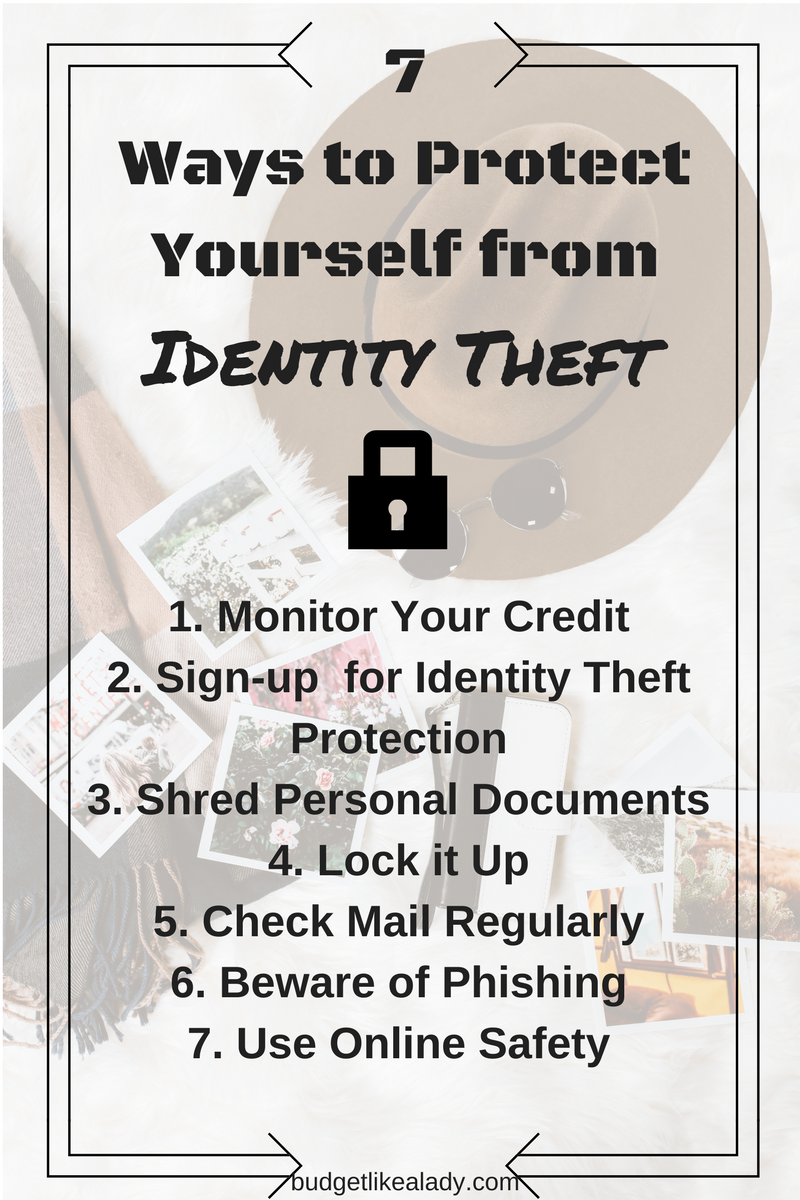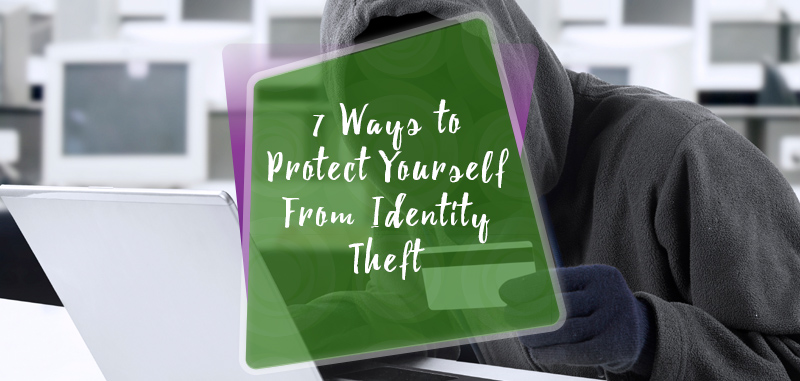7 Ways to Protect Yourself From Identity Theft

Maternity Leave: Getting Prepared Financially
March 9, 2017
Ibotta Review: Money Software Series
April 4, 2017This post contains affiliate links. For more information on affiliate links, see our terms and conditions.
In 2016, 15.4 million American consumers were victims of identity theft, according to Javelin Strategy and Research. Identity theft can be challenging to bounce back from. On average, it takes over a year to dispute identity theft cases.
In 2006, I found out my identity was stolen. It took 5 years to clean up my credit from the damage the thief caused me. My credit score was 430, I didn’t even know credit scores could get that low! It was hard work to fix my credit and clean up my report. That’s a story for another time. I don’t want you to go through what I did so here is how to protect yourself from identity theft.
1. Monitor Your Credit
Monitoring your credit is your first line of defense when protecting yourself from identity theft. Check your credit report at least once a year. You can get a free annual credit report at www.annualcreditreport.com. When you download your credit report, review your report for any delinquent accounts or other discrepancies. Dispute anything that is not accurate.
2. Sign-up for Identity Theft Protection
Signing up for an identity theft protection service will alert you when new account is open in your name. Identity theft protection is similar to insurance. If your identity is stolen, the ID protection service will provide experts and lawyers to argue discrepancies. Some services will reimburse any stolen funds.
ID theft protection pricing can range from $5 to $30. A couple of companies that I am familiar with are:
- LifeLock Identity Theft Services (30 Days Free) (LINK - https://www.lifelock.com/store?promocode=CJ1030RF)
- FreeCreditReport.com
3. Shred Personal Documents
Shred mail that has your name on it. If you don’t have a shredder at home, there are secure shredding services that will shred your documents for little or no money. In addition to shredding documents, shred all expired credit and debit cards.
4. Lock it Up
Keep all personal information safe such as birth certificates, marriage license, and social security cards. I recommend buying a water and fire proof safe. These can be found pretty cheap at Walmart.
5. Check Mail Regularly
Clearing your mailbox to remove personal information, like bank statements, will leave less for thieves to steal. If you are taking a vacation, put your mail on hold. You can do this through your local postal service.
6. Beware of Phishing
We have gotten the email that says we won $1 million from the lottery and to claim the money just send them your personal information. Phishing is fake emails claiming to be from reputable companies trying to get your personal information such as passwords, social security numbers and credit card numbers. Don’t fall for this. Never give out your personal information during a phone call that you did not initiate.
7. Online Safety
Hackers are everywhere. The best way to protect your identity against online hackers is to install firewalls and virus malware detection software on your computer. Also, Create complicated passwords and change them often. This is your best defense against online hackers.



4 Comments
I found it very helpful, the information is good, Keep it up.
Thank you! Glad I could help!
I love the Lock it Up point and Check Mail Regularly. Thank you.
Glad I can help!